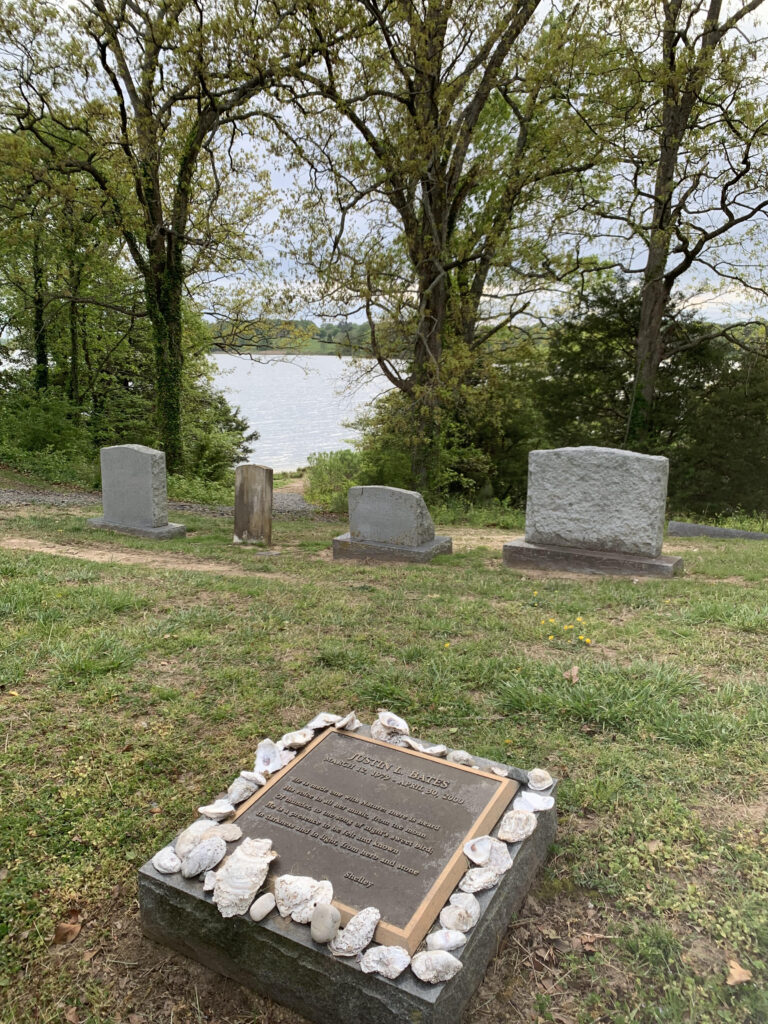Note: If you wish to receive, via e-mail, (1) my weekly newsletter or (2) daily copies of these posts, write to me at rrbates1951@gmail.com. Comments may also be sent to this address. I promise not to share your e-mail with anyone. To unsubscribe, write here as well.
Tuesday
Our eldest son Justin died 24 years ago on this day, which means that every year, just when life is bursting forth, I turn my thoughts to death. Feeling exuberant on a beautiful spring day—the first sunny day in weeks—Justin flung himself, fully clothed, into a spot in the St. Mary’s River where he had swum as a child. Unfortunately, months of rain had unexpectedly created dangerous currents, one of which caught him and dragged him under. He was 21.
Mary Oliver’s poem “No Voyage” captures the thoughts of those who have been left behind. Like the speaker I remember lying by an open window, a gentle spring breeze blowing in, and feeling like “land used up.” I too thought of mourners who had gone before, “board[ing] ship with grief among their maps”–but feeling that, like Oliver, I too wasn’t prepared to move on (“No Voyage”), even though the land beneath me was shifting. And like her, my “wanting life” seemed at an end as nothing—“no novelty and no disguise of distance”—offered me anything. I felt an inhabitant—Oliver uses the word “citizen” to emphasize a sense of obligation—in a fallen city.
I relate to other sentiments in the poem. Where Oliver talks of birds in the trees singing of the circle of time, I would often look out at the spring growth—at the grass, kudzu, catbrier, and spring foliage—and marvel at how life, relentlessly, kept on asserting itself, even in this season of death.
Also, like Oliver, I wondered if I could “inherit from disaster.” Would my life be forever blighted, I wondered, or could I turn the tragedy into something that would prove a blessing for others?
Finally, I too found it of utmost importance “to sort the weeping ruins of my house.” I wasn’t impatient to move past the pain I was feeling. While (luckily) no one told me I would “get over” my grief, I would have ignored them if they had. The most important thing, I felt, was to experience grief in all its dimensions. If Grendel’s Mother was going to pull me down into her underwater cave, I was determined to pay attention to every aspect of that journey. There would be no icing over.*
Of course, I knew that others in my situation had voyaged beyond their grief—as I now have done—but I declared to myself at the time that there would be no premature moving on. I would “make peace” with Justin’s death, either “here or nowhere.”
Here’s the poem:
No Voyage
By Mary Oliver
I wake earlier, now that the birds have come
And sing in the unfailing trees.
On a cot by an open window
I lie like land used up, while spring unfolds.Now of all voyagers I remember, who among them
Did not board ship with grief among their maps?—
Till it seemed men never go somewhere, they only leave
Wherever they are, when the dying begins.For myself, I find my wanting life
Implores no novelty and no disguise of distance;
Where, in what country, might I put down these thoughts,
Who still am citizen of this fallen city?On a cot by an open window, I lie and remember
While the birds in the trees sing of the circle of time.
Let the dying go on, and let me, if I can,
Inherit from disaster before I move.O, I go to see the great ships ride from harbor,
And my wounds leap with impatience; yet I turn back
To sort the weeping ruins of my house:
Here or nowhere I will make peace with the fact.
Unlike her later and better-known nature poems, “No Voyage” has the feel of classic poetry, echoing some of the great elegies. Like John Milton in “Lycidas” and Alan Tate in “Ode to the Confederate Dead,” she invokes the surrounding foliage. Like Percy Shelley in Adonais (“a quickening life from the Earth’s heart has burst/ As it has ever done, with change and motion”) and Alfred Lord Tennyson in In Memoriam (“The seasons bring the flower again,/ And bring the firstling to the flock”), she references the cycle of life. And like T.S. Eliot in The Waste Land, she sees irony in death intruding itself in springtime:
April is the cruelest month, breeding
Lilacs out of the dead land, mixing
Memory and desire, stirring
Dull roots with spring rain.
For us, April really did prove to be the cruelest month and I thought of the poem at the time. But unlike Eliot, who castigates the month for arousing painful emotions, I feared dull numbness more than pain. Searing grief seemed to be the only way I could imagine doing justice to the momentousness of what had occurred.
Or to return to Oliver’s poem, I saw sorting through “the weeping ruins of my house” as my most pressing task.
*On my Beowulf reference: In the past and in my forthcoming book, I do a deep dive into how Beowulf came to my aid in my grief. I see Grendel’s Mother as one of literature’s great archetypes for grief. When she pulls Beowulf down into her underwater lair and tears at his heart, it’s a symbol for how grief pulls us under. The lake is frozen on the top but burns hot underneath. I drew inspiration from Beowulf, who leaps into the lake rather than remaining in a frozen state on the shore. “I will ride this epic journey of grieving wherever she takes me,” I remember saying to myself after revisiting the poem.


